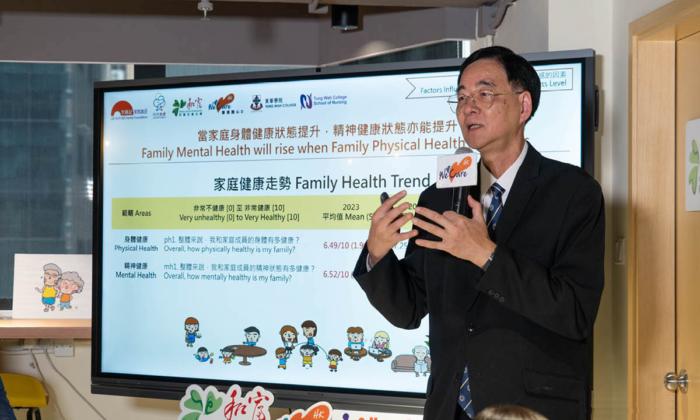A recent survey conducted from April 3 to April 17 in Hong Kong has revealed concerning findings regarding the Family Happiness Index and the declining state of family mental well-being. The survey collected 1,356 online questionnaires and assessed various factors, including family happiness, personal happiness, psychological capital, family cohesion, health status, and resilience.
According to the survey commissioned by the School of Nursing, Tung Wah College, this year’s Family Happiness Index in Hong Kong scored 6.57 on a scale of 1 to 10, representing a decline from the previous year’s score of 6.98. Notably, 17 percent of the respondents reported that their families were unhappy, almost doubling the percentage from 9.8 percent in 2022. Furthermore, the score for family mental well-being stood at 6.52, lower than the previous year’s score of 6.94. Only 55.2 percent of respondents considered their family’s mental state healthy, indicating a decline of nearly 10 percent compared to the previous year.
Daniel Shek Tan Lei, the former Chairperson of the Family Council and survey consultant, highlighted that transitioning back to normalcy after the pandemic can pressure families, impacting their happiness. Young parents, in particular, need to manage their children’s return to full-time school and navigate changes in their work routines. Families must adapt and seek adjustment during this post-pandemic period.
Professor Simon Lam Ching, associate dean of research at the School of Nursing at Tung Wah College, noted that the younger the age group, the more individuals perceive their family’s mental well-being as unhealthy. Respondents aged 55 or above had a lower perception of their family’s mental well-being, with 4.7 percent considering it unhealthy. Comparatively, respondents aged 35 to 54 and 19 to 34 reported higher percentages of 8.1 percent and 9.5 percent, respectively. Families with long-term illnesses or special care needs also exhibited poorer mental states than those without such conditions.
The survey findings also indicate that personal happiness and family cohesion play significant roles in determining the Family Happiness Index. To enhance family resilience, the research team suggests engaging in activities such as sharing household chores, using positive words, spending quality time together, exchanging gifts, and engaging in physical contact.
These findings emphasize the importance of prioritizing mental health and supporting families during the post-pandemic period. Individuals and society must recognize these challenges and proactively address family mental well-being.




